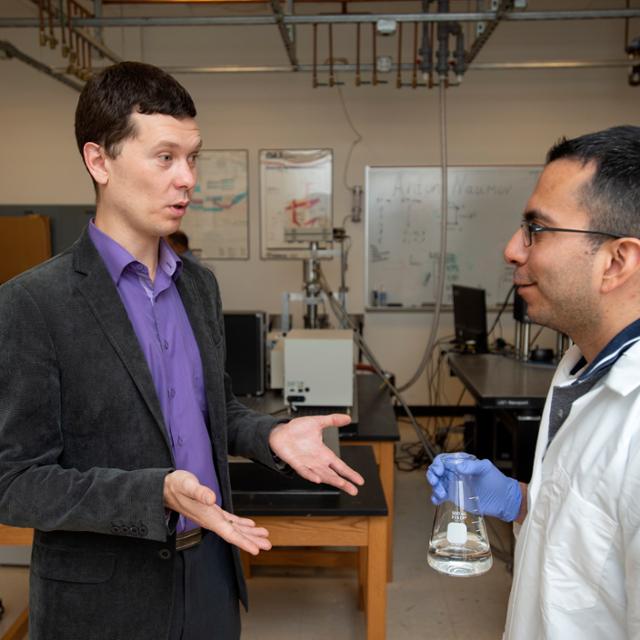Facilities

Our department occupies two floors in the Sid W. Richardson Building. Other units within the college include chemistry, mathematics and psychology, offering degrees through the Ph.D. level, and biology, computer science, geology, and environmental science offering degrees through the MS level, as well as the BS in engineering. The Department’s research labs and classrooms and the Sid Richardson Building underwent a $5 million dollar renovation completed in 2007, to provide attractive and up-to-date facilities for teaching and research.
The Department research facilities are housed in spacious, well-equipped laboratories with specialized equipment including TEM and SEM (transmission and scanning electron microscopes); FTIR (Fourier transform) spectrometers; a Nicolet FTIR spectrometer equipped with infrared microscope; x-ray powder diffractometer; closed-cycle cryogenic refrigerators operating at 3 and 10 K for the preparation of condensed matter samples; Nd-YAG, dye and Ar lasers, Raman spectrometers with CCD detectors; a confocal microscope, gas adsorption apparatus, and time-resolved spectroscopy; a quadrupole mass spectrometer; CAMAC system for multiparameter coincidence experiments; positron lifetime and Doppler broadening apparatus.
Students also conduct experiments off-campus at Brookhaven and Argonne, National Labs, the Center for Fluorescence Technologies and Nanomedicine at University of North Texas Health Sciences Center and in Budapest and Warsaw. In addition to using data taken from space-based telescopes (such as the Hubble Space Telescope), students in astrophysics obtain observational data at national facilities such as Kitt Peak Observatory (Tucson, AZ), Cerro Tololo Inter-American Observatory (Chile), Mauna Kea (Hawaii), and National Radio Astronomy Observatory sites (Greenbank, WVa and Socorro, NM). Observing time on major private observatories such as the McDonald Observatory, Flagstaff and Palomar have also provided supplemental data.
Technical support is provided by a research machine shop staffed by two instrument machinists, and by glass blowing and electronics shops staffed by fulltime, experienced technicians.
Students have access to a variety of workstations and PC computers, as well as network to supercomputers.
TCU is a member of Oak Ridge Associated Universities, and opportunities exist for research at Oak Ridge and affiliated national laboratories.